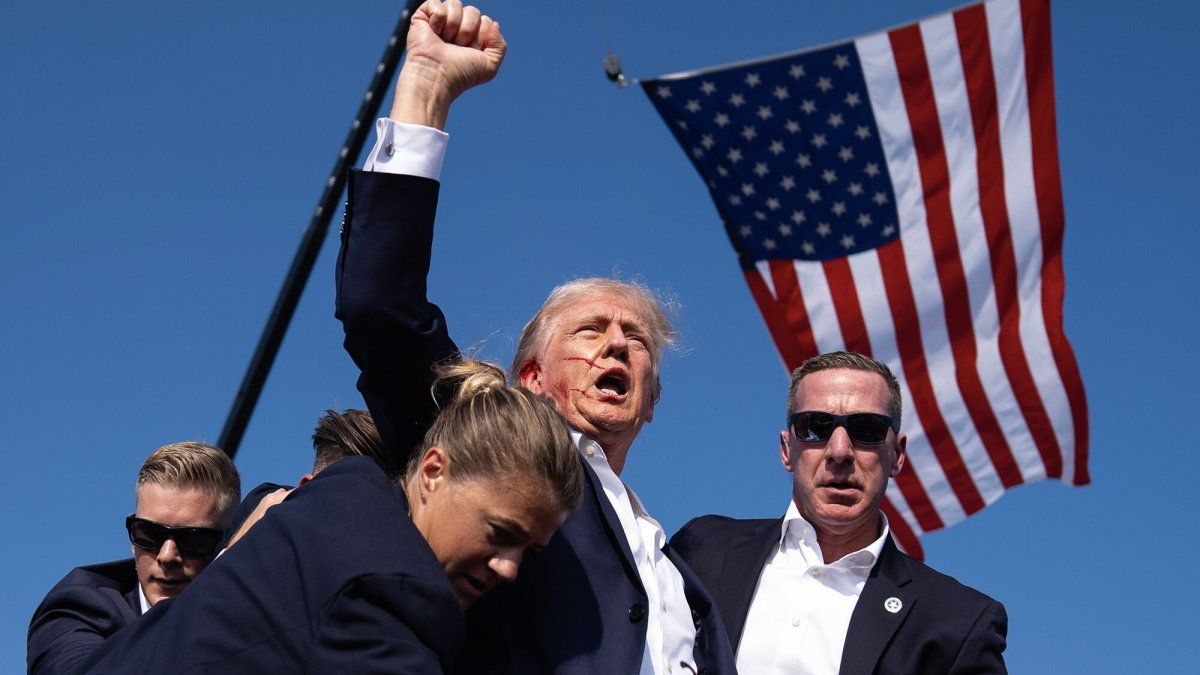President Javier Milei announced from the United States the beginning of a stage of “monetary tightening” by which the Central Bank (BCRA) will also stop issuing money to buy foreign currency, in order to contain inflation and the rise of the dollar.
A measure that begins to take effect this Monday and is faced as “a new upgrade of monetary policy“. The Minister of Economy, Luis Caputo, translated what the president said on X (formerly Twitter) and answered questions.
“From now on, the amount of money remains the same or is reduced (if the Central Bank were to sell dollars in the Mulc). That is, if the BCRA were to buy dollars in the Mulc, the issuance of equivalent pesos will be sterilized with the sale of equivalent dollars in the cash settlement market (CCL)” and added: “To the extent that the BCRA injects pesos by purchasing dollars in the Mulc, will effectively sell dollars in the CCL to sterilize those pesos. That is, the amount of pesos will no longer grow. It will only shrink, since we have a surplus.”
“The peso will be the scarce and in-demand currency, since taxes will continue to be paid in pesos. The absorption is by the amount of pesos. That is, the Central Bank withdraws only the pesos issued and keeps the net dollars to the extent that there is a gap,” he concluded.
Dollar, bonds and inflation: how the new monetary regime will impact
This new scheme calls into question the Central Bank’s accumulation of reserves and therefore its ability to pay the debt, at a seasonally difficult time for the Government. Although the focus will be on lowering inflation, it postpones the end of the currency controls, which requires the Central Bank to have more dollars in its coffers.
Although in the last two months the base expansion by purchase of foreign currency has been null (and the President himself discounts that the next months will be seasonally demanding in dollar flow matter (which makes the measure seem somewhat trivial), a lower accumulation of reserves raises questions about the cability to repay foreign currency debt, which now also includes the Bopreales. It would therefore not be surprising if the prices of these bonds were affected (sovereign risk will sooner or later end up incorporating a more uncertain horizon for the accumulation of reserves).
Dollar industry
Following Caputo’s announcements, markets are expected to be volatile on Monday
The measure should have an impact on the dollar exchange rate, and the Government is sending a new signal to the market to rule out a devaluation. Officially, the strategy is to maintain the crawling peg at 2%, and to bring it into line with inflation, which is still above 4%. This announcement should lower the financial dollars in the short term but without first going through a period of volatility, after the Government ratified the maintenance of the crawling peg of 2%.
Another point to bear in mind is that sovereign bonds may also come under pressure. Salvador Vitelli of Romano Group said: “This is aimed at reducing the gap, but at the same time that it is reduced, the net purchase tends to zero, taking the BCRA out of the exchange market”.
“If the objective of accumulating reserves loses priority and the BCRA is also going to sell in the gap, the bond market will not take it well on Monday”predicted analyst Amical Collante.
Source: Ambito




